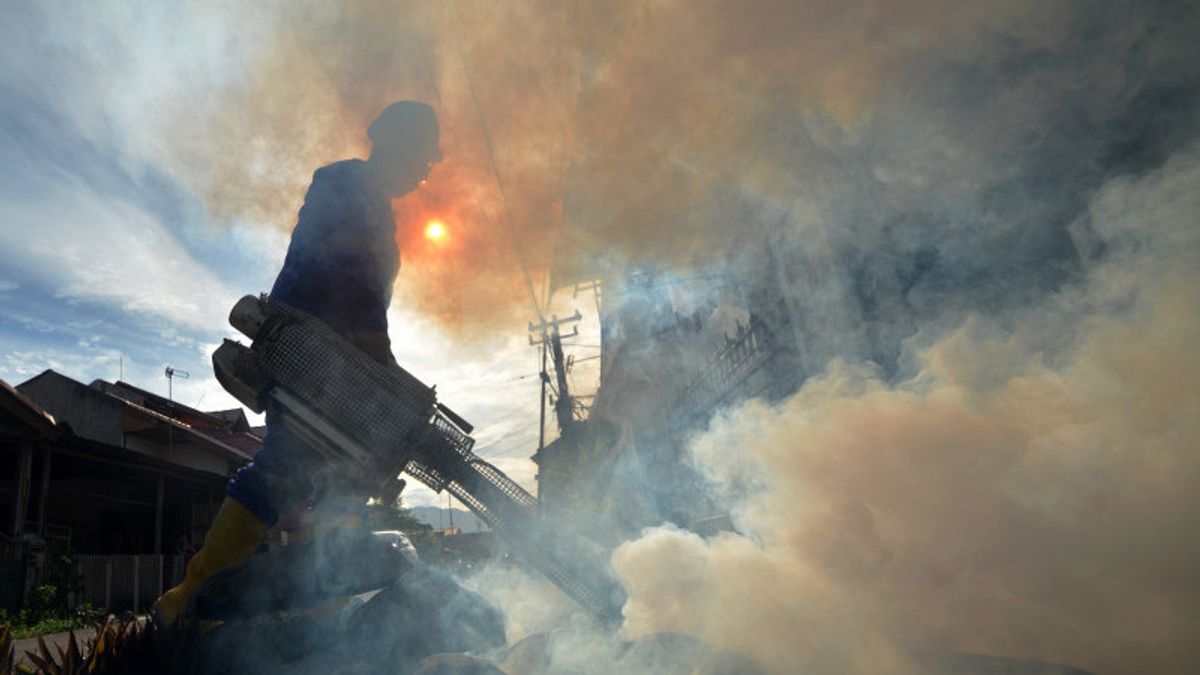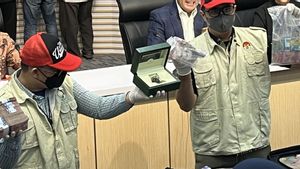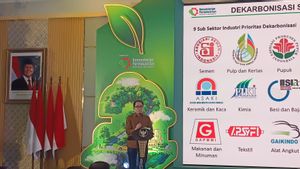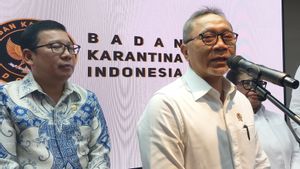JAKARTA - The Ministry of Health (Kemenkes) confirmed that the release of the Aedes Aegypti mosquito larvae containing Wolbachia in Bali was postponed.
The postponement follows the attitude of a number of local people who are not ready for the policy.
"We are currently discussing with the Bali Provincial Government to postpone the release of Wolbachia, and carry out socialization until the public is ready," said Head of the Communication and Public Service Bureau of the Ministry of Health, Siti Nadia Tarmizi, when confirmed, Friday, November 17, as quoted by Antara.
Nadia explained that Wolbachia innovation is a new strategy to overcome the transmission of dengue cases in Indonesia, complementing the current intervention in the form of eradicating mosquito nests (PSN).
Nadia said that Bali Province is one of the testing areas for the implementation of the Aedes Aegypti mosquito innovation containing Wolbachia through collaboration with the World Mosquito Program (WMP).
WMP is a non-governmental organization owned by Monash University, Australia, which works to protect the global community from mosquito-borne diseases such as dengue fever, zika, yellow fever, and chikungu.
WMP di Indonesia merupakan kolaborasi penelitian yang dipimpin oleh Fakultas Medicine, Kesehatan Masyarakat, dan Keperawatan Universitas Gadjah Mada melalui pendanaan Yayasan Tahija.
SEE ALSO:
Meanwhile, the trial of releasing wolbachia mosquitoes through the Decree of the Minister of Health Number 1341 concerning the Implementation of the Pilot Project (Pilot Project) Wolbachia as an innovation to overcome dengue was carried out in five cities, namely Semarang, Bandung, West Jakarta, Bontang, and Kupang.
Previously, the Acting Governor of Bali Sang Made Mahendra Jaya said that the spread of the Wolbachia mosquito still caused pros and cons from the Balinese people.
"If there are still people who do not accept it, we will postpone it first," he said in Denpasar, Bali, Monday, November 13.
According to him, the method of spreading Wolbachia mosquitoes to suppress dengue still requires socialization from the initiator so that all people can accept it.
"It is necessary to socialize, there is a rejection from the community, right, we don't want the community to be divided. The pros and cons must be improved first," he said.
Denpasar Mayor I Gusti Ngurah Jaya Negara said the spread of mosquito larvae with Wolbachia bacteria in Denpasar was still waiting for a decision from the Ministry of Health.
"Hopefully many people, the Wolbachia mosquito will be postponed first. It will be carried out later if implemented by the Ministry of Health," he said, Monday, November 13.
The English, Chinese, Japanese, Arabic, and French versions are automatically generated by the AI. So there may still be inaccuracies in translating, please always see Indonesian as our main language. (system supported by DigitalSiber.id)


















